GENERAL
Allan Lichtman Prediction: Harris’s 2024 Rise

Allan Lichtman prediction models have become a political compass for every U.S. presidential election since 1984—and once again, all eyes are on his forecast for 2024. With a perfect track record built on historical analysis rather than unreliable polls, Lichtman’s latest prediction points toward a potential victory for Vice President Kamala Harris. Using his famed “13 Keys to the White House,” Lichtman offers not just a forecast but a deeply researched outlook on America’s political future. As the nation braces for one of its most polarized elections in history, his insights reveal what really determines a win—and why the stakes in 2024 are unlike any before.
Allan Lichtman Complete Bio:
| Attribute | Details |
| Full Name | Allan Jay Lichtman |
| Date of Birth | April 4, 1947 |
| Nationality | American |
| Profession | Historian, Author, Political Analyst, Professor |
| Current Position | Distinguished Professor of History at American University, Washington, D.C. |
| Education | Ph.D. in History, Harvard University |
| Known For | “13 Keys to the White House” election prediction model |
| Years Active (as Predictor) | Since 1981 |
| First Accurate Prediction | 1984 U.S. Presidential Election (Reagan) |
| Model Success Rate | 100% accurate since 1984 (including predicting Trump’s win in 2016) |
| Number of Books Written | 11+ |
| Notable Books | The Keys to the White House, The Case for Impeachment, White Protestant Nation |
| Major Awards | Fellow, National Endowment for the Humanities; Top Professor Awards |
| Media Appearances | CNN, MSNBC, The New York Times, Washington Post, YouTube, etc. |
| Languages Spoken | English |
| Teaching Specialties | American political history, quantitative analysis, civil rights |
| Political Affiliation | Independent (Claims objectivity in predictions) |
| Key Contribution to Politics | Created a historically grounded and accurate method of predicting U.S. presidential elections |
| Lecture Experience | Lectured worldwide, including Europe, Asia, and the Middle East |
| Current Focus (as of 2024) | 2024 U.S. Presidential Election predictions |
| Live Sessions | Hosts live prediction breakdowns and Q&As on YouTube every Tuesday & Thursday at 9 PM |
Who is Allan Lichtman?
Allan Lichtman is a distinguished professor of history at American University. With a Ph.D. from Harvard and more than 11 published books to his name, he is more than just a political analyst—he’s a historian who has transformed election forecasting into a science. His book, The Keys to the White House, outlines his 13-point prediction model that has accurately called the outcome of every presidential race since Ronald Reagan’s re-election in 1984.
His credibility stems not only from accuracy but from the deep historical and sociopolitical insights he applies. The Allan Lichtman prediction model is not influenced by popular opinion or polling; rather, it is grounded in facts and historical patterns.
The “13 Keys to the White House” System
Lichtman’s famous model, known as the “13 Keys to the White House,” operates like a checklist. These keys are true/false statements. If six or more are false, the incumbent party is predicted to lose. If five or fewer are false, the party retains the presidency. It’s a simple but powerful method that has repeatedly defied pollsters and pundits.
Here are the 13 keys briefly explained:
- Midterm Gains – The incumbent party holds more seats in the U.S. House after the midterms.
- No Contest – No serious contest for the incumbent party nomination.
- Incumbency – The sitting president is running.
- Third Party – No strong third-party campaign.
- Short-Term Economy – No recession during the campaign.
- Long-Term Economy – Real per-capita economic growth is strong.
- Policy Change – Major changes in national policy by the incumbent.
- Social Unrest – No sustained social unrest.
- Scandal – The incumbent administration is free of scandal.
- Foreign/Military Failure – No failure in foreign or military affairs.
- Foreign/Military Success – Major success in foreign/military affairs.
- Incumbent Charisma – The incumbent is charismatic.
- Challenger Charisma – The challenger lacks charisma.
Why Allan Lichtman Prediction Favors Kamala Harris
Lichtman recently shared that if President Joe Biden does not seek re-election, Kamala Harris could still lead the Democratic Party to victory in 2024. Let’s analyze why the Allan Lichtman prediction still leans toward Democrats.
Unity Within the Democratic Party
Lichtman pointed out that the Democratic Party is rallying around Kamala Harris without internal conflict. In contrast to fractured primaries, this unity significantly boosts their chances under the “No Contest” key.
Disregard for Misleading Polls
He warns against trusting political polls too much. According to the Allan Lichtman prediction, polls often misrepresent voter sentiment. Many people either don’t disclose their real preferences or change their minds closer to the election. Historical trends, not polls, guide his model.
Historical Significance of Kamala Harris
Kamala Harris represents multiple “firsts”—first female, first Black, and first Asian-American president, if elected. This historic potential galvanizes voters, particularly women and minorities, which can play a decisive role in confirming the Allan Lichtman prediction.
Government Performance Over Campaigning
The model emphasizes the incumbent’s performance in governance over their campaign tactics. If the Biden-Harris administration demonstrates effective policymaking, that’s more valuable than flashy ads or rallies.
A Highly Polarized Election Climate
Lichtman observes an extremely polarized political environment. He notes receiving threats and abuse for his views, primarily from supporters of Donald Trump. Such polarization could mobilize moderate and undecided voters to oppose extremism.
Comparison Table: Traditional Polling vs. Allan Lichtman Prediction
| Feature | Traditional Polling | Allan Lichtman Prediction |
| Basis | Public Opinion | Historical Patterns |
| Accuracy | Inconsistent | Consistently Accurate |
| Dependence on Timing | Highly Time-Sensitive | Works Regardless of Timing |
| Subject to Manipulation | Yes | No |
| Used by Media | Frequently | Less Common, More Trusted |
| Forecasting Method | Surveys & Numbers | 13 Historical Keys |
How Many Keys Favor Democrats in 2024?
Based on Lichtman’s early assessment:
- 8 Keys are TRUE – In favor of Democrats.
- 3 Keys are FALSE – In favor of Republicans.
This clearly puts the advantage with Kamala Harris if she is the nominee and supports the Allan Lichtman prediction.
Importance of Transition and Charisma
Charisma plays a surprising role in this model. Lichtman believes that while Kamala Harris may not be as charismatic as Barack Obama, her unique background and trailblazing identity could generate enough public enthusiasm. Meanwhile, he questions whether Donald Trump still retains the charismatic appeal that won him the presidency in 2016.
Criticism and Controversy Around Allan Lichtman
Despite his success, Lichtman is not free from criticism. Some accuse him of being overly deterministic or ignoring the “human factor” in elections. Others claim that his model doesn’t account for changes in digital campaigning or misinformation. Nonetheless, the Allan Lichtman prediction model stands firm on its historical approach.
“The keys are not magic—they are based on history,” says Lichtman. “Ignore history at your own peril.”
Can the Keys Be Broken?
While the “13 Keys” have stood the test of time, some political experts question whether modern elections—heavily influenced by social media and misinformation—can still be predicted this way. Yet the Allan Lichtman prediction continues to show consistent accuracy, suggesting historical fundamentals remain critical.
What Does This Mean for 2024?
If Joe Biden decides not to run and Kamala Harris becomes the Democratic nominee, Lichtman’s model suggests she has a strong chance of winning. This is based not on wishful thinking but historical criteria that have proved reliable for four decades. The Allan Lichtman prediction offers valuable foresight.
Conclusion
The Allan Lichtman prediction is more than just a guess—it’s a historically validated forecast built on over four decades of unbroken accuracy. With his renowned “13 Keys to the White House” model, Lichtman offers a data-driven perspective that challenges traditional polls and media narratives. His latest outlook positions Kamala Harris as a potential victor in 2024, signaling not just a political shift but a transformative moment in American history.
As political tensions rise, party divisions deepen, and misinformation spreads rapidly, Lichtman’s unwavering reliance on historical truth serves as both a guide and a warning. Whether you support or oppose the outcome, one thing is clear that the future of the presidency may very well be decided not by headlines or hashtags, but by the history we choose to recognize and the vote we choose to cast.
FAQs
What is Allan Lichtman’s “13 Keys” model?
It is a system of 13 true/false questions used to predict U.S. presidential elections. If six or more are false, the incumbent party is predicted to lose.
Has Allan Lichtman ever been wrong?
Since 1984, his model has accurately predicted every presidential election, including Trump’s win in 2016.
Why does Lichtman ignore political polls?
He believes polls can be misleading and are subject to rapid change, while historical trends are more stable.
Can Kamala Harris really win in 2024?
According to Lichtman’s model, yes—if key indicators like party unity and economic stability remain strong.
What makes Kamala Harris a unique candidate?
She would be the first woman, first Black woman, and first Asian-American president in U.S. history.
Is the “13 Keys” model still relevant today?
While some debate its applicability in the digital age, its consistent accuracy keeps it highly respected.
GENERAL
Myloxarindor Qylendrithal: Unlocking the Meaning Behind the Mystery
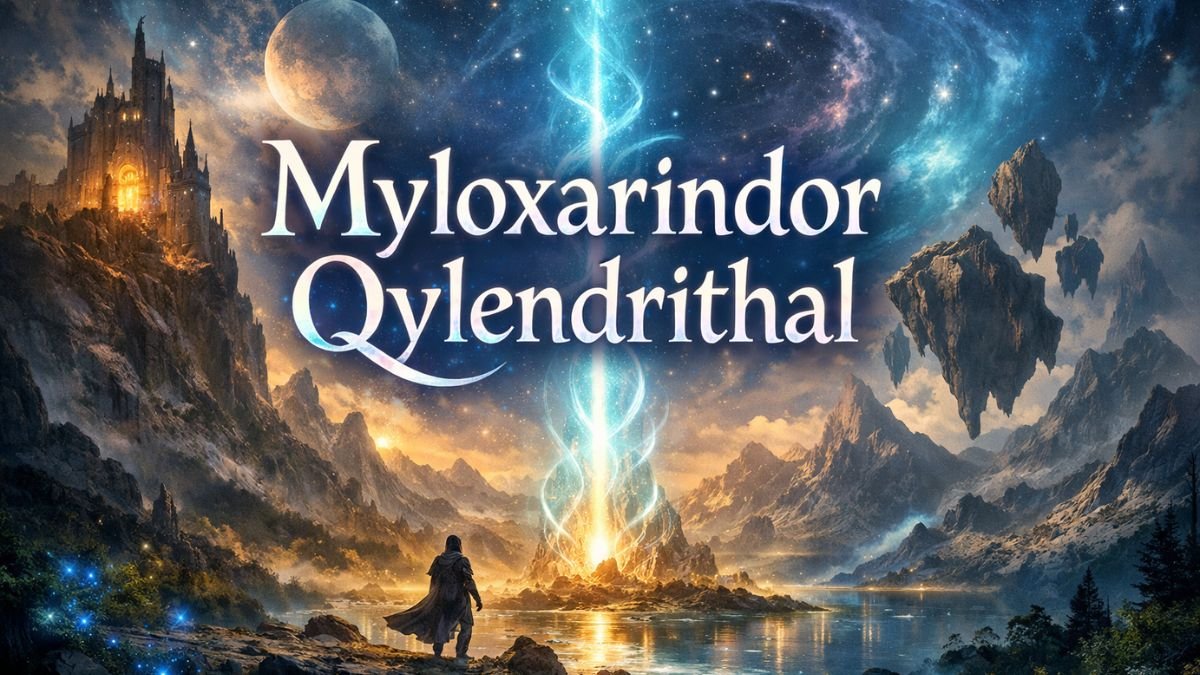
Myloxarindor qylendrithal is a term that immediately sparks curiosity. It sounds rare, complex, and almost mythical. Whether you encountered it in a creative discussion, a fictional setting, or as part of a conceptual idea, this phrase carries a sense of depth and imagination. In this article, we explore what myloxarindor qylendrithal represents, its possible origins, and why it is gaining attention in creative and digital spaces.
The Concept Behind Myloxarindor Qylendrithal
At its core, myloxarindor qylendrithal appears to symbolize something abstract and imaginative. The structure of the phrase suggests fantasy-inspired language, possibly rooted in world-building or speculative fiction. Many unique terms like this are created to represent powerful forces, hidden knowledge, or advanced civilizations in storytelling. The layered sound and rhythm give it a mystical tone that feels intentional and artistic. In creative writing and branding, such distinctive phrases help build identity and intrigue. Myloxarindor qylendrithal stands out because it feels both ancient and futuristic at the same time.
Possible Origins and Linguistic Style
The linguistic style of myloxarindor qylendrithal hints at constructed language patterns often used in fantasy literature and science fiction. Writers frequently develop fictional languages to add realism and depth to imaginary worlds. The phonetic structure resembles high fantasy naming conventions, where syllables are extended and dramatic. This technique enhances immersion and emotional impact. It may also reflect elements of symbolic naming, where the sound of a word carries as much weight as its meaning. As a coined term, myloxarindor qylendrithal demonstrates how language can be shaped creatively to evoke mystery and power.
Creative and Digital Applications
In modern digital culture, unique phrases like myloxarindor qylendrithal can be used for branding, storytelling, gaming, or artistic projects. A distinctive name gives creators a competitive edge by ensuring originality and memorability. For online communities, fantasy games, or fictional universes, such a term can represent a kingdom, artifact, philosophy, or energy source. It may also serve as a symbolic concept in digital art or immersive narratives. Because it is uncommon and highly original, it holds strong SEO potential as well. Unique keywords often rank more easily when paired with meaningful content and strategic optimization.
Symbolism and Interpretative Meaning
The meaning of myloxarindor qylendrithal can be interpreted in many ways depending on context. It might symbolize transformation, hidden wisdom, or a powerful realm beyond ordinary perception. The layered sound of the phrase gives it an almost ceremonial feel, suggesting importance and depth. In speculative storytelling, names like this often represent ancient forces or lost civilizations. Symbolic language allows readers to project their own meaning onto the term, making it flexible and imaginative. This openness adds emotional resonance and creative freedom.
Why Unique Terms Like This Matter
In an era dominated by repetitive content, originality is valuable. Myloxarindor qylendrithal demonstrates the power of creative language in building strong identity and differentiation. Unique terminology strengthens brand presence, supports world-building, and enhances memorability. It encourages deeper engagement because people naturally want to understand what unfamiliar words mean. From a search engine perspective, distinctive phrases reduce competition and increase visibility. More importantly, they inspire creativity and intellectual exploration.
Conclusion
Myloxarindor qylendrithal is more than just an unusual phrase. It represents imagination, linguistic creativity, and the power of unique expression. Whether used in storytelling, branding, or conceptual design, it carries depth and intrigue. In a crowded digital world, originality stands out—and this term embodies that principle perfectly. By embracing creative language like myloxarindor qylendrithal, writers and creators open doors to new ideas and limitless possibilities.
FAQs
What is myloxarindor qylendrithal?
It is a unique, imaginative term often interpreted as a symbolic or fantasy-inspired concept.
Is myloxarindor qylendrithal a real word?
No, it appears to be a coined or constructed phrase rather than a dictionary term.
Where can myloxarindor qylendrithal be used?
It can be used in creative writing, gaming, branding, or digital storytelling projects.
Why are unique phrases like this important?
They help create originality, improve memorability, and strengthen identity.
Does myloxarindor qylendrithal have a fixed meaning?
No, its meaning depends on context and creative interpretation.
GENERAL
American Lifestyles: A Closer Look at Culture, Work, and Everyday Living

American lifestyles are often described as dynamic, diverse, and constantly evolving. From busy urban centers to quiet rural towns, life in the United States reflects a blend of tradition and modern ambition. The country’s size, cultural diversity, and economic opportunities shape how people live, work, and spend their free time. While no single definition fits everyone, certain patterns stand out in American lifestyles, including a focus on independence, career growth, innovation, and personal freedom. Understanding these elements helps explain how Americans approach daily living and long-term goals.
Cultural Diversity and Identity
One of the strongest features of American lifestyles is cultural diversity. The United States has long been shaped by immigration, bringing together people from different backgrounds, languages, and traditions. This multicultural environment influences food, music, fashion, holidays, and even communication styles. Cities like New York City and Los Angeles are prime examples of cultural blending, where communities celebrate both American traditions and their heritage.
This diversity encourages openness and creativity in everyday life. Families may celebrate Thanksgiving while also observing cultural festivals tied to their ancestry. As a result, American lifestyles often combine global influences with local customs. Identity becomes personal rather than fixed, allowing individuals to express themselves freely through lifestyle choices, careers, and social circles.
Work Culture and Career Focus
Work plays a central role in shaping American lifestyles. Many Americans prioritize career growth, entrepreneurship, and professional achievement. The idea of the “American Dream” still influences how people view success, often linking it to financial stability, homeownership, and upward mobility. Long working hours and competitive industries reflect a strong work ethic that values productivity and ambition.
At the same time, modern shifts have changed workplace culture. Remote work, digital entrepreneurship, and the gig economy now allow more flexibility. Professionals in cities like San Francisco often work in technology-driven environments, while others pursue freelance careers from home. This blend of hard work and innovation continues to shape American lifestyles, balancing ambition with new approaches to work-life balance.
Family Life and Social Values
Family structures in the United States vary widely, reflecting social change and personal choice. Nuclear families, single-parent households, blended families, and same-sex couples all contribute to the country’s social landscape. Respect for individual decisions is a core part of American lifestyles, giving people the freedom to define what family means to them.
Community involvement also plays an important role. School events, neighborhood gatherings, and volunteer work help build social connections. While independence is valued, Americans often support local causes and charities. This balance between personal freedom and community engagement defines many aspects of social life, creating both private space and shared responsibility.
Urban vs. Suburban and Rural Living
Geography significantly shapes American lifestyles. Urban living in cities like Chicago offers fast-paced environments, diverse job markets, and vibrant nightlife. Residents often rely on public transportation and live in apartments or condominiums close to work and entertainment hubs. City life emphasizes convenience and cultural access.
In contrast, suburban areas focus on family-friendly neighborhoods, larger homes, and quieter surroundings. Rural communities offer even more space, often centered around agriculture or small businesses. These differences show how lifestyle choices depend on personal priorities such as career goals, cost of living, and preferred pace of life. Each setting reflects a different version of American living.
Food, Entertainment, and Leisure
Food culture highlights the variety found in American lifestyles. From fast food chains to farm-to-table restaurants, eating habits range widely. International cuisines thrive alongside classic American dishes, showing the impact of globalization. Dining out, food delivery apps, and social gatherings centered around meals are common parts of daily life.
Entertainment also shapes leisure time. Sporting events, music festivals, streaming platforms, and outdoor recreation offer countless options. The influence of major entertainment hubs like Hollywood has made American media globally recognizable. Whether hiking in national parks or attending concerts, Americans value recreation as a way to recharge and connect socially.
Technology and Modern Living
Technology deeply influences modern American lifestyles. Smartphones, social media, and e-commerce platforms shape communication and shopping habits. Digital payments, online education, and remote healthcare services have become normal parts of daily routines. Innovation drives convenience and efficiency in both personal and professional life.
The rapid adoption of new technologies reflects a forward-thinking mindset. Many households rely on smart home devices, streaming services, and digital work tools. This tech-driven culture supports entrepreneurship and global connectivity, making American lifestyles adaptable and future-focused. While technology brings challenges such as screen time and privacy concerns, it remains central to how people live today.
Conclusion
American lifestyles cannot be defined by a single description. They are shaped by diversity, ambition, innovation, and personal freedom. From cultural traditions and career goals to family values and technological advancement, daily life in the United States reflects constant change. Urban, suburban, and rural communities all contribute to the broader picture of American living. By understanding these elements, we see that American lifestyles are less about uniformity and more about choice, opportunity, and self-expression in a fast-moving world.
FAQs
What are American lifestyles known for?
American lifestyles are known for diversity, independence, career focus, and a strong emphasis on personal freedom and innovation.
How does culture influence American lifestyles?
Cultural diversity shapes food, traditions, social values, and identity, creating a blend of global and local influences.
Is work important in American lifestyles?
Yes, work and career growth are major priorities, often connected to financial stability and personal success.
What role does technology play in daily life?
Technology supports communication, remote work, entertainment, and online services, making life more connected and efficient.
Do all Americans live the same way?
No, lifestyles vary widely depending on location, culture, income, and personal choices, reflecting the country’s diversity.
GENERAL
Balabusta Magazine: Where Culture, Creativity, and Community Meet
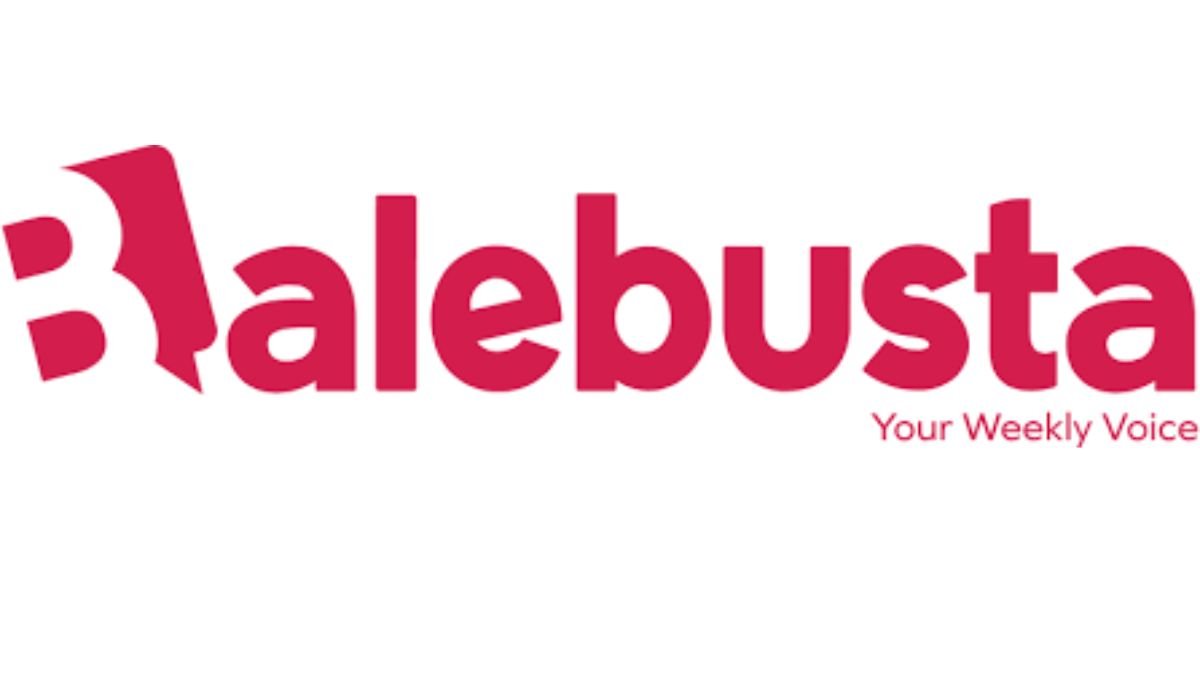
The Balabusta Magazine is more than just a publication; it’s a celebration of identity, heritage, and modern living. With a fresh voice and thoughtful storytelling, the magazine connects readers to culture, food, art, and strong community values. Whether you are passionate about meaningful journalism or simply love discovering inspiring stories, this lifestyle magazine offers depth without feeling heavy. It blends tradition with contemporary insight in a way that feels warm, intelligent, and refreshingly authentic.
The Meaning Behind The Balabusta Magazine
The word “balabusta” traditionally refers to a capable, strong, and resourceful woman who manages life with grace and determination. The Balabusta Magazine embraces that spirit and turns it into a powerful editorial identity. It focuses on empowered living, cultural pride, and thoughtful storytelling that resonates with modern readers. Instead of chasing trends, the magazine highlights timeless values such as family, resilience, creativity, and leadership.
Through its name and mission, the publication honors heritage while encouraging personal growth and innovation. It stands as a symbol of confidence and community strength. Readers feel represented and understood, which is why the magazine continues to build a loyal and engaged audience.
Editorial Focus and Content Style
The Balabusta Magazine covers a wide range of lifestyle topics, including food culture, family traditions, wellness, entrepreneurship, and creative expression. Its content feels carefully curated rather than mass-produced. Articles are written in a warm yet professional tone, making complex subjects easy to understand without oversimplifying them.
One of the publication’s strengths lies in its narrative journalism approach. Instead of quick summaries, it dives into personal stories, cultural insights, and meaningful conversations. Readers are not just consuming content; they are connecting with lived experiences. This storytelling style gives the magazine depth and emotional resonance.
Celebrating Food, Tradition, and Modern Living
Food plays a central role in The Balabusta Magazine, reflecting how cuisine connects generations and preserves cultural identity. Recipes are not just instructions; they are stories of heritage, memory, and family traditions. This focus on culinary storytelling adds authenticity and warmth to the publication.
At the same time, the magazine explores modern lifestyle trends, sustainable living, mindful wellness, and creative entrepreneurship. It balances nostalgia with innovation, showing readers how to honor their roots while embracing change. This unique blend makes the content relatable to both older and younger audiences.
Community, Empowerment, and Representation
A key reason why The Balabusta Magazine stands out in the crowded media landscape is its strong sense of community. It highlights voices that are often overlooked and gives space to diverse perspectives. Interviews with creators, leaders, and everyday changemakers help readers feel inspired and connected.
The magazine promotes empowerment without being overly dramatic or cliché. Its approach is subtle yet impactful, encouraging readers to take pride in their identity and pursue meaningful goals. By focusing on representation and inclusivity, it builds trust and long-term loyalty among its audience.
Why The Balabusta Magazine Stands Out Online
In today’s digital publishing world, many lifestyle platforms rely heavily on fast content and viral trends. The Balabusta Magazine takes a different path by prioritizing quality over quantity. Its long-form articles, rich storytelling, and culturally grounded themes provide real value rather than surface-level entertainment.
From an SEO perspective, the magazine integrates relevant topics such as cultural lifestyle, empowered women, food heritage, and modern community living. It maintains a natural flow of keywords without sounding forced or repetitive. This strategic yet organic approach helps it rank well while keeping the reading experience smooth and enjoyable.
Conclusion
The Balabusta Magazine is a powerful example of how modern publishing can honor tradition while embracing progress. With its focus on culture, food, empowerment, and authentic storytelling, it creates a meaningful space for readers seeking depth and connection. The publication stands out not because it shouts the loudest, but because it speaks with clarity and heart.
For anyone looking for a lifestyle magazine that feels intelligent, warm, and genuinely inspiring, The Balabusta Magazine delivers substance without sacrificing style. It proves that strong storytelling and cultural pride can thrive beautifully in the digital age.
FAQs
What is The Balabusta Magazine?
The Balabusta Magazine is a lifestyle publication that celebrates culture, food, community, and empowered living through meaningful storytelling.
What type of content does The Balabusta Magazine publish?
It covers topics such as food heritage, family traditions, wellness, entrepreneurship, and cultural identity.
Who is The Balabusta Magazine for?
The magazine is designed for readers who value culture, authenticity, strong community connections, and modern lifestyle insights.
Is The Balabusta Magazine focused on women’s empowerment?
Yes, empowerment is a core theme, inspired by the meaning of “balabusta,” which represents strength, capability, and leadership.
Why is The Balabusta Magazine unique?
Its blend of cultural storytelling, modern lifestyle content, and community-driven journalism makes it stand out from trend-focused media platforms.
-
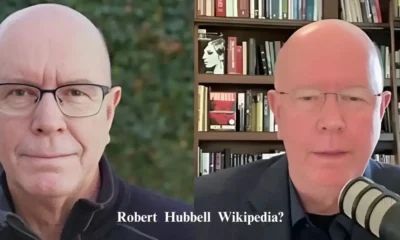
 GENERAL7 months ago
GENERAL7 months agoRobert Hubbell Wikipedia: What’s His 2025 Biography Guide?
-

 EDUCATION9 months ago
EDUCATION9 months agoJay Kuo Substack: Unpacking the Voice of Legal Insight
-

 GENERAL9 months ago
GENERAL9 months agoDream Cake: A Decadent Delight Worth Savoring
-
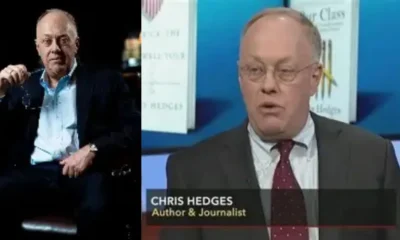
 GENERAL9 months ago
GENERAL9 months agoChris Hedges Substack: A Voice of Dissent in the Digital Age
-

 ENTERTAINMENT9 months ago
ENTERTAINMENT9 months agoTyler the Creator Dad Truth
-

 TECHNOLOGY9 months ago
TECHNOLOGY9 months agoHow to Cancel Substack Subscription
-
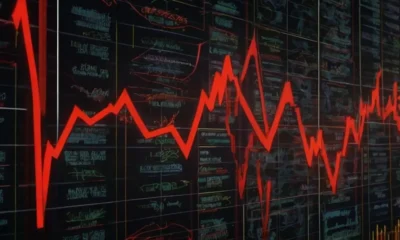
 EDUCATION9 months ago
EDUCATION9 months agoEconomic Blackout Results: The Financial Domino Effect
-

 GENERAL9 months ago
GENERAL9 months agoMax Azzarello Substack: Inside the Mind of a Radical Truth-Seeker
